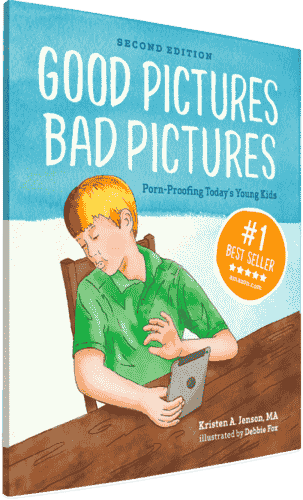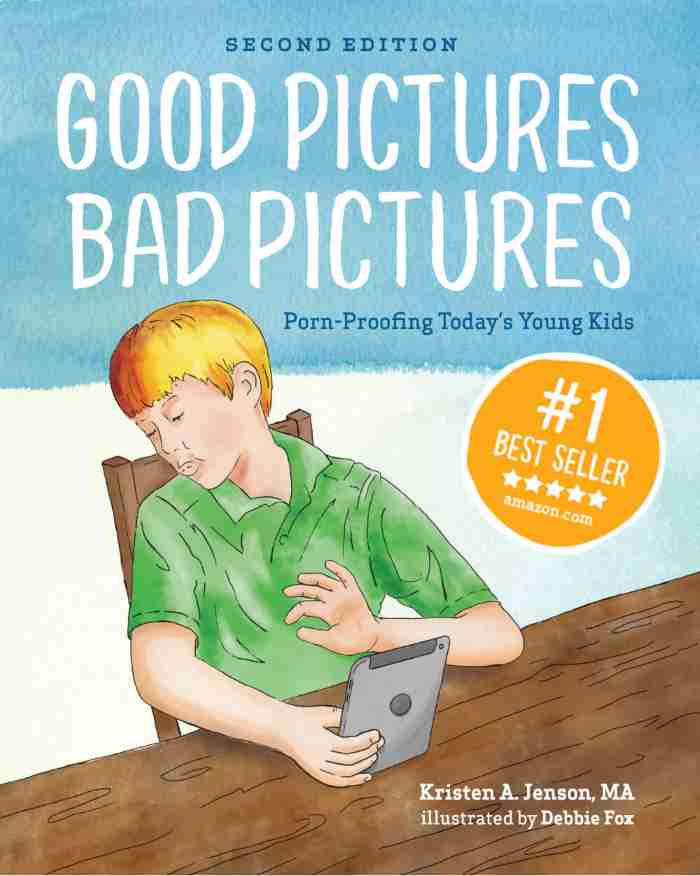
Block Porn Interest: A Proactive Parenting Plan
Most parents want to block porn access for their kids. In the digital age, this is impossible. A more effective approach for keeping kids from pornography is addressing the heart of the matter: what might drive a young person to compulsive pornography viewing in the first place. When parents can help a child understand what creates a strong desire to see porn, that child has a much better chance of resisting it.
I started teaching my son, Lucas, when he was quite young that having uncomfortable feelings is a normal part of life. (I addressed this in an earlier post, Get Emotional: A Valuable Legacy from Father to Son.)
As Lucas grew older, I became more deliberate in helping him understand and create plans to address his emotional needs.

Author John Fort and his son Lucas
Unmet Emotional Needs Drive Lust
When our emotional needs are not met, we crave comfort. There are few things that are as immediately comforting as pornography and lust. The chemicals given off in our brains when we are aroused have few equals in their ability to block unpleasant feelings.
Males, in particular, learn very early that fantasy, pornography and masturbation eliminate negative feelings. At least, they do for a very short time. Our brains remember this experience, even if we are not consciously aware of it. From that point forward, when our relational needs are not met, leaving us feeling lonely or misunderstood, our brains begin to scream at us, “Hey, I know a way to make these bad feelings go away!”
The problem is this transition happens so fast we do not recognize when a need triggers a desire to escape through fantasy. Children, who are less aware than adults, will not understand why they might suddenly crave pornography, seemingly out of the blue. A child who had decided not to look at pornography often feels confused and ashamed when caught off guard by feelings of lust.
Children need help connecting the dots. If parents will teach children to identify their emotional needs and make plans to meet them, kids will have far less trouble with wanting to experience pornography in the first place.
How to identify the emotional needs behind surface feelings
Children typically can verbalize that they are sad or mad, but these are superficial feelings that do not reveal which unmet need is causing them to feel this way. When we see our children looking sad, or when they verbalize such a feeling, we can ask questions to help them discover the unmet need behind their feeling.
Below is a short list of common emotional needs.
Put another way, all people have a need to feel the following ways:

Which emotional needs impact your child the most?
Parents can look over the list and work with their child to try to discover unmet emotional needs that are leading the child to feel bad. The goal is to help children become aware of which needs, when unmet, cause them the most pain and may lead to addictive behaviors. We can model this by examining ourselves, discovering which unmet needs are the most powerful to us, and sharing these with our children. For example, I have found that I am affected most when I do not feel included or when I do not feel heard.
Help kids understand how their unmet needs impact them
The next step is to help our children see the connection between unmet needs and the desire to escape into pornography or sexual fantasy. Unmet needs can become the trigger to suddenly wanting to do things we may have promised ourselves we would not do.
I remember trying to teach this to my son, Lucas, when he was 12 and 13, but he had a very difficult time seeing the connection between unmet emotional need and his occasional intense urge to see pornography.
But it eventually became clear to him. Here is what Lucas says:
My dad and I started getting into accountability [related to pornography] when I was about 11. At first, when my dad tried to explain the “needs” part of accountability, I didn’t really understand it. I didn’t understand that wanting to see pornography had anything to do with my emotions.
It all came together when I was 14. I noticed the main time I had trouble with fantasy and wanting to see pornography was when I walked home from school. It was a long walk and I had no one to walk with. I finally realized I didn’t like being alone so long and the feeling of not being included was the problem.
Block porn interest by creating a plan
It does little good to simply be aware of a need not being met. We must create a plan to meet the need. Regular conversations about emotional health should include making specific plans to address unmet emotional needs.
For example, how do we cope with times we feel sad or alone? We can’t wait until we feel those emotions to start thinking of a way to meet those needs. Otherwise, lust will rear its head and give us a quick escape that is hard to resist.
Here is how Lucas describes the plan we created to meet his need:
We talked about my experience walking home during our accountability meetings, and I made a plan to call my dad at 4:00 every day on my way home, just to have someone to talk to. Even when he couldn’t talk, I could still send a text. It was amazing, just making a simple connection like that really helped. After that, the amount of times I wanted to see porn went down and down.
Parents and children can be accountable to one another
I share with my son at the same level he shares with me. I mentioned my main trigger needs are being included and feeling heard. My plan to meet my emotional needs is to have regular conversations with a couple of supportive male friends.
When my son and I discuss how we are doing, I tell him whether I have been reaching out to these close friends. I am accountable to him to be taking care of myself just as he is to me to be connecting to people he trusts when he feels lonely.
My son has discovered his greatest needs are to be included and to feel valued. So his accountability to me includes making plans to address loneliness when he knows he will be alone and to spend more time talking face-to-face with friends than communicating via text or social media. That is because he has found face-to-face community feels much more affirming to him than texting or social media.

Healthy relationships are the key to meeting emotional needs
Feeling valued, included or heard can only happen within relationship. Another person is required. Exercise will not help me feel more valued. Eating right will not make me more wanted. We can have those goals, but they do not directly help us with emotional needs.
Let us be clear on this point: Emotional needs are not wants; they are really needs. We are social creatures. We have needs that can only be met through our relationships with other people. A parent is a child’s first line of defense in this area and will help the child most if feelings and needs are discussed on a frequent, if not daily, basis.
My regular discussions with Lucas have helped him learn how to uncover his emotional needs and find healthy ways to cope with painful feelings. Here’s what he says:
One thing that I try to do is that whenever I feel sad, angry, lonely, etc., I share those feelings with my dad once they spark up. Even if I don’t know what it is that is making me feel that way. By doing this, I can talk about it and usually walk away feeling better and not have to even think about doing anything sexual.
It’s clear that talking about painful feelings in an effort to understand them has helped Lucas block porn from gaining too much power over him.
My son and I have both found that lust has less power when we are aware of our emotional state and make plans to address our unmet emotional needs. Notice I did not say we never feel lust; we are still human. Still, our commitment to emotional health remains our most effective strategy against pornography use.
Related: Helping the Kid Who Doesn’t Want Help
[[CTA]]


Good Pictures Bad Pictures
"I really like the no-shame approach the author takes. It's so much more than just 'don't watch or look at porn.' It gave my children a real understanding about the brain and its natural response to pornography, how it can affect you if you look at it, and how to be prepared when you do come across it (since, let's face it... it's gonna happen at some point)." -Amazon Review by D.O.










